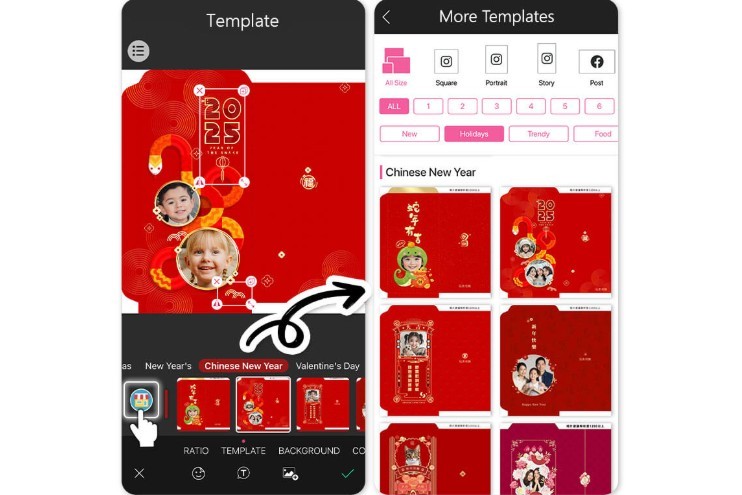Vietnamese Tet (Lunar New Year): Dates, Holidays and Celebrations
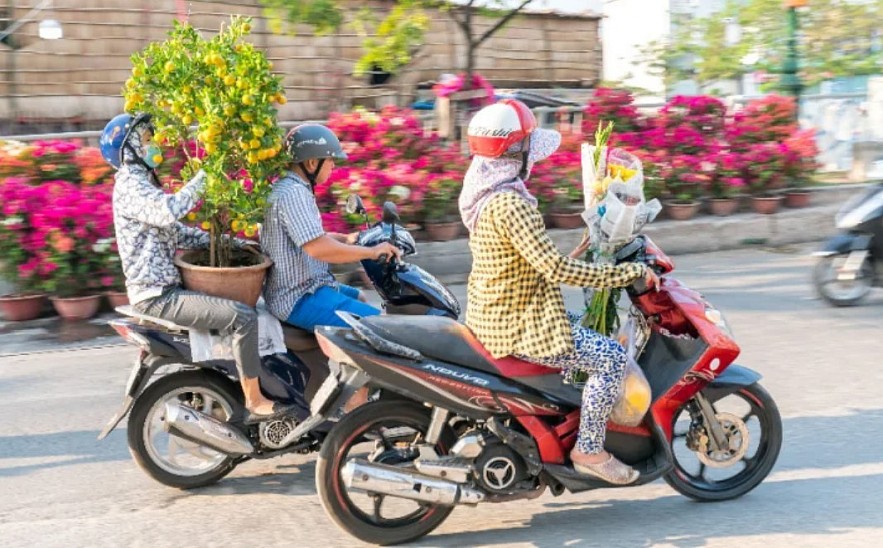 |
| Vietnamese Tet - Lunar New Year Holidays |
What is Tet in Vietnam?
The Lunar New Year, or Tet Nguyen Dan, is Vietnam's most significant yearly celebration and public holiday, lasting five to seven days.
Tet marks the arrival of spring and the start of a new year. There are raucous celebrations with street performances of dragon dancing, traditional cuisine, and music. It's a joyous time to visit Vietnam because there's a genuine spirit of celebration in the air during this period.
Tet, a holiday marked by rebirth, gives Vietnamese people a chance to gather with family and honor their ancestors.
A week prior to Tet, people usually start making preparations. They clean their family graves, attend family altars, and decorate their homes with kumquat trees, peach blossoms, and apricot blossoms, which stand for the hopes of prosperity and well-being.
What is Vietnamese Tet Holiday?
Of all the Vietnamese holidays, Tet, or the Vietnamese New Year, is the most important one. It is a national celebration that coincides with the start of the new lunar calendar year. The dates of Tet vary every year, but they usually fall from the middle of January to the end of February.
The Tet holiday, also called the Vietnamese New Year, is a deeply culturally significant and long-standing celebration in Vietnam. Read this article to learn about the significance of Tet holiday, including the warmth of family get-togethers, the delight of exchanging gifts, and the wide variety of traditional foods enjoyed during Tet.
How to say Happy New Year in Vietnamese?Being a tonal language, Vietnamese can be difficult to learn. But if you greet people with a big smile and say "chúc mừng năm mới" during Tet, they will understand you right away. This sounds like "chook moong nahm moi" in Vietnamese and means "Happy New Year." |
When is Vietnamese Tet (Lunar New Year) 2024?
Tet 2024 is another name for the Vietnamese New Year in 2024. In the Gregorian calendar, it falls on February 10th, 2024, and in the Lunar calendar, on January 1st, 2024. Because the Lunar Calendar has a leap month every three years, Tet frequently varies from year to year. In the Solar calendar, it falls between late January and early February.
The term "Tet" is derived from the Vietnamese phrase "Tet Nguyen Dan," which refers to the celebration of the first morning of the year. In Vietnamese culture, this is the biggest and most significant festival. Tet is not only a time to mark the change of the year from one to the next, between the cycles of heaven and earth and the life of everything, but it's also a chance for people to honor their parents and ancestors and spend time with their families.
How Long is Tet Holiday in Vietnam?
Tet is a lunar calendar holiday that is typically observed on the same day as Chinese New Year. Every year, the date varies, but it usually occurs in late January or early February. For Tet, the majority of Vietnamese people will have five days off.
Tet celebrations can last anywhere from three days to a week. The day before New Year's Eve, New Year's Eve, and New Year's Day comprise the festival.
These days will fall on a different date each year because they all line up with the lunar or Vietnamese calendar. In 2024, Saturday, February 10th, is Tet Festival.
The following lists the dates of the upcoming Vietnamese New Year festivities along with the corresponding Lunar Zodiac Animals.
.
• 2024: February 10 – Year of the Dragon
• 2025: February 29 – Year of the Snake
• 2026: February 17 – Year of the Horse
How Long is Vietnamese Tet (Lunar New Year) Holiday 2024?
Tet is observed on February 10th (a Saturday) in 2024. The Year of the Dragon is here. The Chinese Zodiac's Rabbit is replaced by the Dragon as the fifth sign in the Vietnamese zodiac.
• 2024 is the year of the Dragon
• The 2024 Tet will last for 7 days (08 February to 14 February, 2024).
• Tet 2024 will fall on 10 February, 2024.
When Vietnamese begin talking about Tet and getting ready for it over the course of the previous few weeks or months, foreigners may wonder when it happens and how long it lasts. Vietnamese New Year is celebrated for more than 20 days, but only 7 official days are off during the public holiday.
According to the Lunar Calendar, Vietnamese New Year 2024 will take place from December 23 to January 15. It consists of a number of festivities and events that have various spiritual connotations for Vietnamese people.
Tet 2024 can be divided into 3 periods of time:
- Before the New Year’s Eve (23/12-30/12)
- New Year’s Eve (30/12)
- The New Year (1/1-15/1)
Vietnamese Tet Holidays and Festivities
Tet is a festival that lasts three days, but it can last up to a week. It is divided into three parts: the days before New Year's Eve, New Year's Eve itself, and the days that follow. The first event signaling the arrival of Tet is the celebration of Ong Tao, the protector of the household kitchen fire, on the 23rd day of the twelfth lunar month. It is a spiritual exercise that cultivates optimism for a prosperous and fortunate new year.
At midnight on the eve of the first day of the lunar New Year, Tet's most important event occurs. Families erected two ancestral altars at this exact moment, one for the spirits of their ancestors and the other for the earth and heavens. This ceremonial custom symbolizes letting go of the bad luck from the previous year and welcoming the goodness and blessings of the next.
The official Tet period, which lasts from the first to the third day of the first lunar month and represents a new beginning for a prosperous new year, begins on the night after Vietnamese New Year's Eve. It is customary for families to get together during this time, visit relatives, honor the long life of the elderly, give children lucky money, and exchange good wishes for a prosperous and safe new year.
There is a proverb in Vietnam that reads, "Mong 1 tet cha" (the first day is for visiting paternal relatives), "Mong 2 tet me" (the second day is for visiting maternal relatives), and "Mong 3 tet thay" (the third day is for honoring teachers), illustrating the deeply ingrained custom in Vietnamese culture to show respect for educators.
How to Celebrate the Vietnamese Tet?
Tet is the most family-oriented holiday in Vietnam out of all the celebrations, and many people return to their ancestral homes to celebrate with their extended families. Families will prepare a feast on Tet to greet and wish each other a happy New Year, as well as to welcome visiting relatives and friends.
Vietnamese New Year is significant for the Vietnamese people because, like Chinese New Year, they feel that their actions on the first day of the year will have an impact on the remainder of the year. As a result, they focus extremely on everything they say and do on this particular day.
Traditional Rituals Before Tet: Cleaning and Shopping
Vietnamese families typically devote a significant amount of time to cleaning and sweeping their homes prior to Tet. This signifies clearing the slate of bad luck from the past year and preparing the way for the arrival of the new one.
Vietnamese people honor their ancestors on Tet by cleaning their family shrines, putting together a display of images of them with incense burning, and giving offerings of flowers and fruit because they believe that the spirits of their departed family members will visit the living. The shrines are thoroughly cleaned before Tet, and fresh offerings and decorations are added.
The streets are filled with eye-catching displays of vibrant flowers as a result of the intense festival atmosphere. People go market shopping to purchase new clothes to wear when visiting friends on New Year's Eve, as well as decorations for their homes and ingredients to prepare traditional Tet cuisine.
The following are a few customs to get ready for the Tet holiday:
Offerings to the Kitchen God are customarily made on the 23rd day of the twelfth lunar month.
Making "banh chung" and "banh tet" (traditional Tet cakes) is a tradition.
The custom of setting up the tray with the "5 fruits" on the family altar
The custom of going to the graves of one's ancestors
The custom of the year-end "cung tat nien" ceremony, which honors the earth and ancestors
The custom of New Year's Eve celebration
The Lunar New Year's Day - Tet
But the nuclear family usually gets to enjoy the first Tet day. Children will get red envelopes filled with cash from their older relatives on this day.
In order to ward off evil spirits, people celebrate New Year's Day by setting off firecrackers, drums, bells, and gongs in the streets. This day also sees the completion of a parade. Parades are large, colorful events with people donning masks and lion dances that take place throughout the cities.
Families gather for a big feast of traditional Vietnamese food following the parades and firecrackers.
Vietnamese people like to invite someone of good morality to be the first person to visit their home in order to bring them full blessings for the New Year, as they believe that a family's fortune is determined by these visitors for the entire year.
Tet is also regarded as a fortunate time of year to launch a company or open a store.
Why is Tet Holiday so important to Vietnamese people?In terms of traditional celebrations, the largest festival is the Lunar Tet holiday observed in Vietnam. When discussing the Tet holiday in Vietnam, there are still differing opinions on where the holiday originated and its history. Nonetheless, the general consensus upholds the Tet celebration's exclusively Vietnamese origins. As per the folklore surrounding "Banh chung banh day," Tet has been observed by the Vietnamese people since the Hung Kings' reign, predating even the northern occupation. The Vietnamese Tet holiday is described in numerous ancient Chinese texts as a time when people got together to feast, dance, and sing. Tet is very important to the Vietnamese people. It has strong emotional bonds and spiritual significance, growing into a beloved custom. In Vietnamese culture, Tet is a time for family get-togethers as well as a symbol of the relationship between heaven, earth, and humanity and the divine. Vietnamese New Year is a serious and holy holiday that celebrates the passing of the old year and the arrival of the new one with blessings of prosperity, harmony, and good health. In Vietnam, celebrating the Lunar New Year is also a chance to uphold the moral precept of honoring one's heritage and roots. Additionally, it's the perfect time to promote harmony, make amends, and settle disputes that arise in day-to-day interactions between people. |
The Traditional Foods for Tet Holiday in Vietnam
Vietnamese cuisine is a beautiful part of Vietnamese culture, and as such, families look forward to the Tet feast every Tet holiday. Vietnam's diverse culinary customs and customs surrounding the preparation of traditional Vietnamese New Year's cuisine contribute to the country's rich cultural and gastronomic diversity.
Tet Holiday Foods in the North
During the Tet holiday, Northern Vietnamese cuisine is typically associated with dishes meant to be served on the ancestral altar. These dishes include:
Chung cake: A cake in the shape of a square, representing the earth. In the northern region, it is an essential dish during the Tet holiday.
Xoi gac: This dish is a must-have because of its red color, which represents luck and happiness.
Vietnamese pork roll: Symbolizing abundance and harmony, it is typically positioned at the center of the Tet feast.
A traditional dish that reflects the cooking methods of Vietnamese ancestors is dried bamboo shoot soup.
Tet Holiday food in the Central
You shouldn't miss out on Central Vietnamese cuisine while visiting the region because of its unique flavors, which are defined by strong, rich tastes. The following foods are unique to the Tet holiday:
Banh tet: In Central Vietnam, banh tet is an essential dish during Tet, much like banh chung. These circular cakes stand for completion and fullness.
Vegetables pickled in vinegar: These crunchy, sweet, and sour veggies, like papaya and carrots, go well with banh tet.
Fish sauce-marinated meat: In many Central Vietnamese provinces, marinating meat in fish sauce is a popular tradition during Tet.
Vietnamese beef roll: Beautiful red-pink chunks of beef roll are frequently found on tables during the Tet holiday in Central Vietnam.
Tet Holiday food in the South
Special dishes such as these are served during a meaningful Tet celebration for people in the southern region of Vietnam:
Banh tet: Just as in the Central area, Southern Vietnam's Tet celebrations would not be complete without banh tet.
Vietnamese braised pork belly: As a symbol of wealth and family unity, Southerners frequently make a big pot of braised pork belly for Tet.
Often seen on Southern Tet tables, stuffed bitter melon soup represents overcoming adversity and welcoming joy and good fortune.
Known for its flavorful and aromatic taste, Chinese sausage is a popular Tet dish in Southern Vietnam that can be prepared in a variety of ways.
Most Important Tet Holiday Traditions and Customs
Tet's cultural significance is always upheld and observed through customs that include performing worship rituals, treating every family member with respect, love, and care, and the custom of offering lucky money as a token of good wishes.
Ancestor worship and altar setup
Vietnamese people hold the belief that although their ancestors' spirits travel to a different realm after death, they occasionally stay here on Earth. Therefore, it is crucial to follow the custom of honoring one's ancestors during significant family dinners and feasts from New Year's Eve until the first three days of the year. The purpose of honoring the dead on this day is to invoke their spirits to come together and partake in the food that their descendants have prepared.
Additionally, to show respect for the ancestors and the wish for a prosperous and peaceful new year, delicious dishes, Tet flower arrangements, and a tray of five fruits (which may vary by region) are meticulously displayed on this occasion. The ancestral altar is also thoroughly cleaned. This tradition, which emphasizes the value of respecting one's Vietnamese cultural roots, has been, is, and will continue to be passed down.
Paying respects to parents and elders
Tet is a time for family get-togethers and a chance to honor, love, and care for every member of the family for the Vietnamese people. Children honor their parents and grandparents, especially during this time, by wishing them longevity and sending Tet wishes for health and peace to their parents, grandparents, and senior relatives. It draws attention to the highly valued Vietnamese custom of "respecting the elders," which is a beautiful aspect of Vietnamese culture that ought to be maintained.
Giving and receiving red envelopes (li xi)
The term "Li xi" refers to a traditional Vietnamese Lunar New Year custom that celebrates youth by stuffing money into little, brightly decorated envelopes. Vietnamese families visit their neighbors and relatives or get together around the dinner table on the first day of the new year. Vietnamese lucky money is given by adults to children as a Vietnamese New Year gift to commemorate their youth and to the elderly as a wish for a long life during these gatherings.
Vietnamese people have a lovely cultural custom of giving lucky money on Tet, believing that it will bring good fortune and luck from the very first days of the new year. This is especially done as a show of concern for the next generation.
Most Common Celebration Activities on Tet Holiday
In Vietnam, there are lots of fun things to do to celebrate Tet, which falls during the whole spring season. Don't pass up the opportunity to visit and take part in these Tet celebration events.
Cultural festivals over the three regions
The Tet celebrations in Vietnam, which are held all over the nation, are a unique cultural element that draw lots of visitors. On this day, people offer up prayers for their families and themselves to live peaceful and happy lives.
Dao People's New Year Dance Festival: This event, which takes place in Sapa on the first and second days of the Lunar New Year, features fourteen different Dao traditional dances. To celebrate, people congregate around fires and join in song, dancing, and joyous celebration.
One of the most well-known traditional Tet celebrations in Vietnam is the Perfume Pagoda Festival in My Duc, Hanoi. It draws a large number of visitors who come to see the Buddhist holy sites and take in the surrounding natural beauty.
Dong Ky Village Firecracker Parade: This festival, which takes place in Bac Ninh between the fourth and seventh days of Tet, features a number of events, including the burning of firecrackers, the parade of traditional relics, and more.
Tich Dien Doi Son Festival: This long-standing Tet celebration in Vietnam is held in Ha Nam from the fifth to the seventh day of the first lunar month. It symbolizes respect for ancestors' origins.
Dong Da Festival: Commemorating King Quang Trung's magnificent victories, this festival takes place in Hanoi on the fifth day of the first lunar month. It portrays King Quang Trung's leadership of the nation-building and defense efforts and includes drum performances.
The Tet holiday and the first month of the Vietnamese Lunar New Year also coincide with a number of other festivals, including the Nguyen Tieu Festival in Hoi An, the Dinh Ba Ong Lang Festival in Phu Quoc, the Yen Tu Pagoda Tet Festival in Quang Ninh, the Cau Ngu Festival in Danang, the Sinh Village Wrestling Festival in Hue, the Duc Thanh Tran Temple Festival in Ho Chi Minh City, and many others.
Fireworks displays and public events
The fireworks display on New Year's Eve is a must-see every year when the Tet holiday arrives. An old legend is the source of the long-standing custom of igniting fireworks. Not only are fireworks lit on New Year's Eve to ward off evil spirits, but they also represent the hope for a calm and fortunate new year. In contemporary times, Vietnam hosts free fireworks displays in public spaces to celebrate the lunar and Gregorian New Years as well as other public holidays, inviting people to take part and wish for prosperity and well-being.
Lion and dragon dances
Long ingrained in Vietnamese culture, the dragon and lion dances are now a standout attraction at the Tet Festival (Vietnamese Lunar New Year) held annually in Vietnam. During the Tet holiday, these dances are usually performed at temples and pagodas, signifying wishes for good fortune, prosperity, and luck. The costumes' vivid hues, such as red and gold, stand for power, beauty, and good fortune.
Visiting pagodas and temples during Tet
Vietnamese families customarily visit pagodas and temples during the first three days of the Lunar New Year to offer prayers for good health, happiness, and fortune in the upcoming year. Many people make the pilgrimage to nearby pagodas on New Year's Eve as the clock strikes midnight, offering prayers for their well-being and the well-being of their loved ones. Many people think that on New Year's Eve, their wishes will all come true.
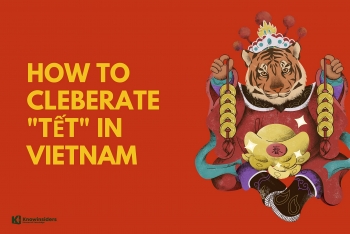 How to Celebrate a Vietnamese New Year: Traditions, Customs and Taboos How to Celebrate a Vietnamese New Year: Traditions, Customs and Taboos The lunar new year holiday, known simply as Tết, is the happiest time of year in Vietnam. How to celebrate Vietnamese New Year (Tet): Traditions, ... |
 Lunar New Year 2024: Top 3 Luckiest Zodiac Animal Signs Lunar New Year 2024: Top 3 Luckiest Zodiac Animal Signs According to the Eastern horoscope, these animal signs' fortunes will prosper and be rich starting with the Lunar New Year in 2024. |
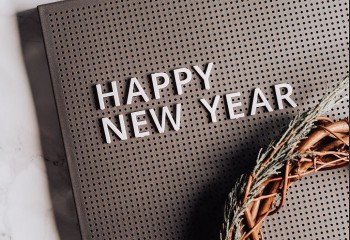 Happy Lunar New Year: 100+ Best Greetings and Wishes for Every One Happy Lunar New Year: 100+ Best Greetings and Wishes for Every One Lunar New Year is associating with the Chinese New Year and Spring Festival which often celebrated among some Asian countries including China, Vietnam... Here are ... |
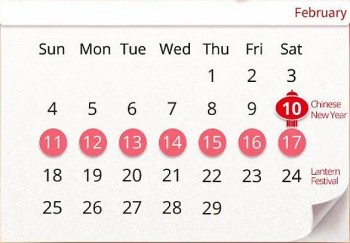 Lunar New Year Holidays 2024 (Chinese New Year): Dates, Celebrations Lunar New Year Holidays 2024 (Chinese New Year): Dates, Celebrations One of the most significant and extensively observed holidays in Chinese culture is Chinese New Year, sometimes referred to as the Spring Festival or Lunar ... |

